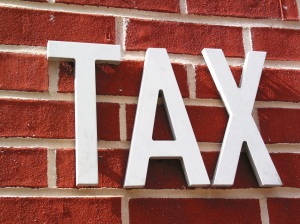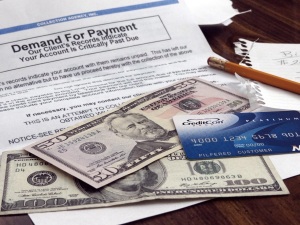The 3 Most Overlooked Business Startup Costs
 Many people dream of becoming business owners. They want the freedom that comes with being their own boss, the idea that the sky is the limit appeals to them, and they want to do something that they love. The problem is that most people fail to plan accordingly, and most small businesses fail within a few years of starting. Before you take the plunge, and risk failing right off the bat, read these three overlooked costs of starting a business. Then you will want to talk with an accountant in Billings, Montana to make sure that you have everything else in order.
Many people dream of becoming business owners. They want the freedom that comes with being their own boss, the idea that the sky is the limit appeals to them, and they want to do something that they love. The problem is that most people fail to plan accordingly, and most small businesses fail within a few years of starting. Before you take the plunge, and risk failing right off the bat, read these three overlooked costs of starting a business. Then you will want to talk with an accountant in Billings, Montana to make sure that you have everything else in order.
Licenses, Insurances, Registrations, and More
Not all businesses are created the same. Some, by their very nature, have more liability than others. For instance, if you start a business that provides home décor and organizational tips then you are not going to have as much liability as a business that provides physical therapy or roof installation.
Even though not all businesses are created equal, there are some things they all have to do. For instance every business needs to file with the state and the city where they are conducting business. These fees are not expensive, but if you fail to do so then you can end up paying a severe penalty.
Like failing to register your business, failing to maintain the proper insurances can lead to penalties as well. If you don’t have liability insurance and surety bonds in place, and you try to do work on someone else’s house, you could end up in a lot of trouble.
Business consulting services provided by Practical Taxes can help you get everything in place before you start your business.
Employee Costs and Payroll Services
Many businesses can be run without employees. However, there are others that simply need personnel to keep them going. If you are starting a business, you will not only need to find those employees, but you may also need to run background checks on them. Once they are hired, there is a lot of bookkeeping that goes into making sure they are paid on time. It may be tempting to try to do all of this work yourself, but in the long run it is more efficient to enlist the services of an accountant in Billings, Montana.
A+ Accounting & Consulting provides payroll services and online payroll services for those located anywhere in the country.
Self-Employment Taxes
When you work for someone else, and you are on their payroll, they are responsible for paying half of your FICA taxes (about 7.65%) and you are responsible for the other half. When you work for yourself, you pay the entire amount of FICA taxes. This additional 7.65% in taxes are often called the self-employment taxes. Now there is a bit more to it than just tacking on an additional 7.65%, but the bottom line is that your tax bill may end up being quite a bit higher than you realize.
Practical Taxes is a full service accounting firm in Billings, Montana and can help with all of your tax issues that pop up.
Enlisting the Help of Practical Taxes
Starting a business is no small task. Most businesses that are started on a whim don’t last very long. Those that take the time to prepare, plan, and enlist the services of outside professionals tend to fare better. If you are looking to start a business, begin your journey by consulting with an accountant in Billings, Montana.
Practical Taxes can help with payroll services, online payroll services, business consulting, tax preparation and more.









